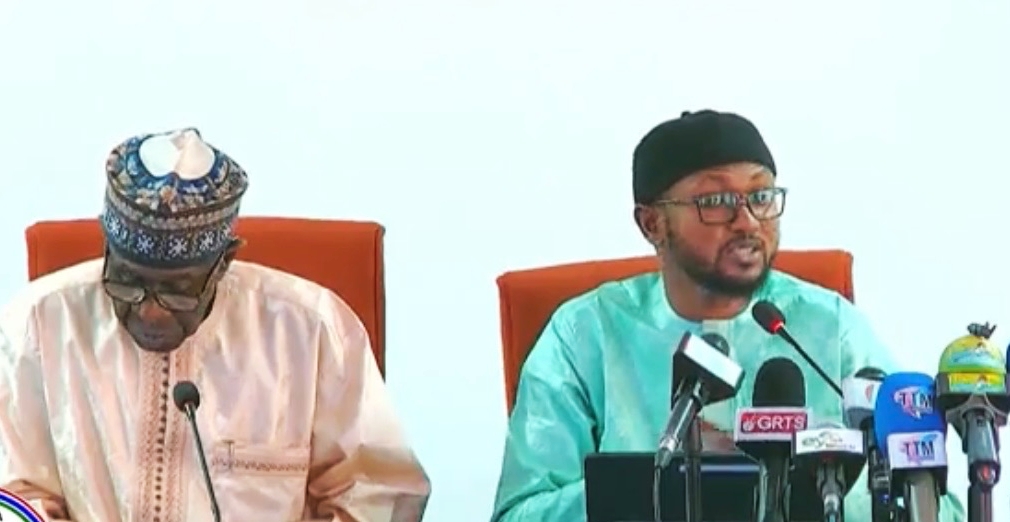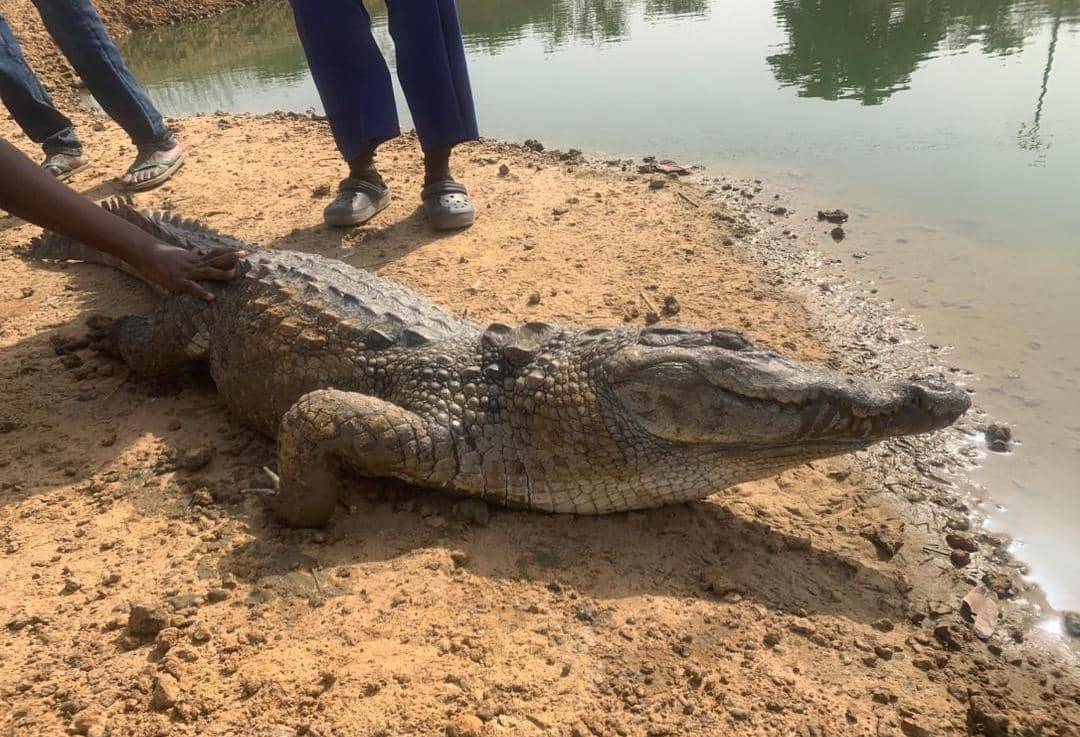RFI: This historical essay about Africa is one of the most awaited pieces of this season. The French version of Howard French’s Born in Blackness: Africa, Africans, and the Making of the Modern World is available from Calmann-Lévy Publishing.
The American researcher and writer outlines in his superb work the crucial role he believes the slave trade played in the emergence of the modern world, a role he claims has frequently been overlooked or even obliterated. He does this by painting a picture of the slave trade across ages. Noires Origines is the title of the book’s French translation. In this interview with RFI’s Laurent Coreau, Howard French talks about the essentials in the book.
RFI: In Noires Origines, you invite us to shed certain historical blinders about Africa’s role in world history and its essential part in the construction of the West as we know it today. You explain that Europe’s rise depended heavily on its relationships with the African continent, even before colonization…
Howard French: Indeed, the story of my book begins in the 14th century, at the start of that century, when Africans, notably within the Mali Empire, established connections with the Middle East. Through this, Europe discovered the existence of a vast amount of gold in what we now call the Sahel. This marked the beginning of an era of exploration, discoveries… and the slave trade. In 1326, a Malian emperor named Mansa Musa made a pilgrimage to Mecca, passing through Cairo. He traveled with a large entourage of more than 10,000 men and women… and also a few tons of gold—the exact quantity isn’t known, but historians often estimate around 17 or 18 tons. He distributed all this gold along the way to such an extent that he had to borrow money to return to Mali. This generated a wave of curiosity not only in the Middle East, where the price of gold dropped, but as far as Spain and Portugal. This encouraged them, especially the Portuguese, to start building ships to try to locate the source of these precious metals.
RFI: You present fascinating insights into how Europe fantasized about this African gold, beginning with a world representation: the Catalan Atlas of 1375. How was this atlas one of the starting points of the tragic history that would follow?
At the center of this map, this Catalan Atlas, stands the figure of Emperor Mansa Musa. He sits on a golden throne, holding a golden scepter. This was the first time Europeans learned of the existence of great emperors in sub-Saharan Africa, rulers similar to those they knew in Europe. This created an industry of atlas and map makers and inspired geographers to explore what lay south of the Sahara. Europeans were, for the first time, extremely motivated to uncover the path to African gold and establish contact with African kingdoms to understand the origins of this wealth.
RFI: A key point in your book, Howard French, is your argument that the Portuguese thirst for African gold drove their major explorations—a motive that’s largely forgotten in history.
Exactly. Portugal had a rivalry with Spain… and Portugal had taken the lead in exploring the “New World.” At the time, the “New World” was not the Americas; Europeans referred to sub-Saharan Africa as the new world. The Portuguese Aviz dynasty gave Prince Henry, known as “the Navigator,” the authority to lead the exploration of sub-Saharan Africa. He spearheaded maritime expeditions to trace the source of Mali’s gold. With the technology available at the time, the Portuguese could only advance southward by 100 or 200 kilometers each year along the African coast. By 1471, they reached what we now call Ghana. They hadn’t targeted Ghana but stumbled upon it, stopping to restock their ships. There, they found that all the locals wore gold jewelry. They hadn’t reached Mali, but they’d achieved their goal by accident, if you will. Thus, they began trading with the Ghanaians for gold and established commerce between Europe and Africa.
RFI: This trade brought abundant gold into European, particularly Portuguese, treasuries. What impact did this African gold have on European economies at the threshold between the Middle Ages and the modern era?
Let’s talk about Portugal first. The amount of gold was so significant for Portugal—a poor kingdom at the time—that they renamed their treasury the “House of Africa.”
RFI: The Portuguese public treasury was renamed “House of Africa” because of the importance of African gold in filling Portuguese coffers?
Yes, following the discovery of Ghana’s gold, roughly a third to half of Portugal’s revenue came from Ghana. Spain, witnessing Portugal’s success, then invested in shipbuilding and funded explorers like Christopher Columbus to “discover the Americas,” as we now say. But it was only after seeing Portugal’s success with African gold that Europeans dared to search for gold elsewhere. The initial goal was not to discover other civilizations or Eastern riches but to compete with Portugal for control of the world’s gold.
RFI: What connections do you draw between this exploitation of gold and the slave trade that rapidly developed afterward?
The roots of the slave trade are very interesting. Initially, the goal wasn’t for Europeans—specifically the Portuguese—to trade in slaves. Portugal was relatively poor and lacked resources. To fund the search for gold and the building of the necessary ships, Henry the Navigator and his men gradually started trading slaves along the African coasts—in what is now Mauritania, Senegal, Guinea, and so on—as they moved south in search of gold. At first, they traded people, enslaving Africans and sending them to Europe to finance the quest for gold. Europe, meanwhile, was recovering economically from the devastating Middle Ages plague, with a population weakened by epidemics. The Portuguese realized they could make substantial money by providing African labor for European markets, ultimately funding their pursuit of West African gold. By the 16th century, 10 to 15 percent of Lisbon’s population was African due to this slave trade—well before the so-called “discovery” of the Americas.

RFI: We’re discussing Portugal, but in fact, all European powers at the time became involved in this trade…
Exactly. Seeing Portugal’s success, other European countries also rushed into trade with Africa for gold. They, too, discovered that the slave trade was immensely profitable. By accident, the Portuguese also stumbled upon Brazil; they weren’t aiming to cross the Atlantic but rather to improve navigation to reach the southern tip of Africa and the Indian Ocean. In doing so, they “collided,” so to speak, with Brazil, uncovering a new continent. The Portuguese began transporting enslaved people to Brazil, where the first large sugar industry developed.
RFI: As your book reveals, the sugar industry took one of its most brutal forms in the sugar plantations of São Tomé, then later in the Caribbean and possibly also in Brazil?
Yes. The first experiments indeed took place in São Tomé. In the late 15th century, while searching for other sources of gold, the Portuguese found the uninhabited island of São Tomé, which had a perfect climate for sugarcane. They began cultivating sugarcane there, giving rise to an industry. With this industry came a form of human exploitation never seen before, known as chattel slavery—a term that doesn’t have a French equivalent. Chattel slavery is a form of slavery based on racial identity and is perpetuated across generations: not only are you enslaved, but so are your children and their children, indefinitely.
RFI: The labor conditions on these sugar plantations were also extremely brutal for the enslaved…
Incredibly brutal. The life expectancy of an enslaved person on these plantations, as well as later in Brazil and the Caribbean, was about five years.
RFI: After sugar, cotton production grew from the slave trade. Overall, you describe a system that converted lives taken from Africa into wealth consumed in Europe. Ultimately, you show how Africa played an essential role in constructing the Atlantic world…
Yes, and I would go further: the labor extracted from Africans on plantations under this system of chattel slavery was truly the foundation for Europe’s growth and the creation of the West, a sort of partnership between Western Europe and the lands across the Atlantic. It was the forced labor of Africans that made the colonies in the New World profitable and thus formed the very basis of the West.
RFI: How did African powers at the time respond to these European appetites?

The African leaders and chiefs and even the emperors who existed here and there in the great states of West and Central Africa, had no idea about the activities happening across the Atlantic, where Africans taken from the continent were put to work for Europeans. They had no image of the world of plantations. They had no understanding of the existence of an institution like chattel slavery, which I mentioned earlier. Slavery had always existed among Africans, between Africans, but it wasn’t the same kind of slavery, where people are perpetually enslaved, generation after generation. Africans married their slaves… Under the African systems of slavery as they existed, the aim, most of the time, was to assimilate the slaves, the conquered, into the society of the victors. This is entirely different from the slavery practiced by Europe on Africans, the form of slavery that I call chattel slavery. So, yes, it is true that Africans also took part in the slave trade. They are also responsible for this trade, but they didn’t have full information about what was happening. There was a complete imbalance between Europeans and Africans regarding what slavery actually meant.
RFI: Throughout your book, we can clearly feel its ambition: to contribute to a new narrative on the history of the West’s rise, one where the role of the slave trade is no longer hidden. How would you explain this erasure of Africa’s role in the birth of the modern world? Why?
I think, first of all, that every civilization seeks to claim its own merits. They seek to highlight their own qualities and, to do that, they create their own myths. Whether it’s the Chinese, Americans, French, Brazilians, or Russians—everyone does this… But if you acknowledge that your civilization was largely built on something as grave and massive as the slave trade, the world of plantations, the creation of an institution like chattel slavery, it becomes very difficult to uphold your own virtues.
RFI: One last question, then, about the stakes of this history. Why is it important for a citizen of the 21st century to go back in time and reexamine what happened along the African coasts starting from the 15th century?
We need to know where we came from to know where we are going. At a time when Africa is taking on a different role in the contemporary world, it’s important to understand that Africa has always made significant contributions to humankind. It is essential to restore Africa to its rightful place in the history of humanity.










